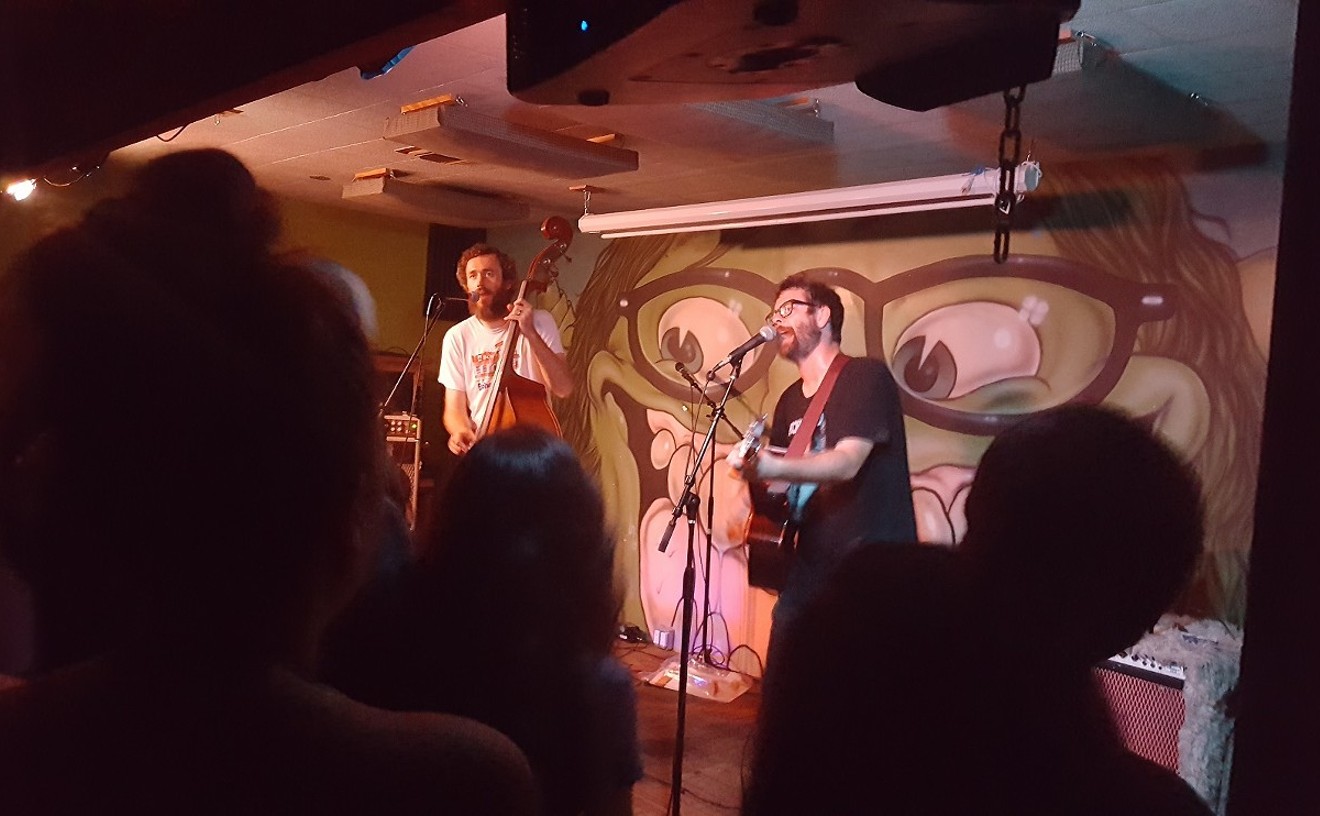New Times: I was surprised at how much humor there is in your book, which at its core is about a very terrible occurrence.
Martha Beck: But don't you think that's a description of life on Earth? There are so many terrifically funny things in the world, yet so much to be frightened of, too.
NT: You might be the single most qualified person in America to stand up to the patriarchy of LDS society. Your father was a pillar of that community.
Beck: I don't know. I think that every problem that human beings create has a cast of characters around it. Mine just happen to be Latter-day Saints. Some of them are Abe Lincolns and Harriet Tubmans, the people who are pointing out that there's a problem with child sexual abuse among Mormons. I say, "How do you use what you've been given in this life to maximize your experience here?"
NT: There was actually an e-mail campaign against the book before it was published.
Beck: Right -- by groups who wanted my publisher to stop the presses. There were threats of lawsuits, and physical threats against me. And it wasn't a reaction to the book, because no one had read it. There was one e-mail campaign aimed at Oprah, to try to get the book disavowed by Oprah or to get me fired from O magazine. [The naysayers] did me a huge favor by jumping the gun, because it was clear that these were people who were complaining before they'd even read the book, which made them look a little paranoid. They do get feisty, these Mormons.
NT: The LDS folks seem to think your book will turn people against them. Memo to Mormons: Most of us who aren't Mormons already think you're scary as heck.
Beck: I'm so glad you said that. They're so enclosed in their little world that they can't imagine that I wanted people outside of Mormonism to understand that world a little better. It's like my mother telling me once that I shouldn't go into therapy [to talk about my sexual abuse] because there are no psychologists who haven't heard of my father. On what planet, Mom?
NT: Mormons are wacky. I mean, they believe that their underwear repels demons.
Beck: Oh, yes, indeed. And if you wear your [special underwear], after you die you get your very own planet to live on.
NT: I have enough trouble managing a house. A whole planet would drive me nuts.
Beck: But if you were Mormon, you'd have dozens of wives to keep the planet tidy for you.
NT: Wives? This scenario keeps getting scarier. But speaking of marriage, what's this thing about a vow that Mormons take on their wedding day that if they ever tell temple secrets, they'll allow themselves to be killed?
Beck: "I will suffer my life to be taken" is the exact wording. It's true. It's part of the marriage ceremony.
NT: I read some of your hate mail on your Web site. All those Mormons writing in to say they're glad you'll be burning in hell. Devout people say the nicest things!
Beck: This is something we should be discussing in the world: that fundamentalism and fanaticism are the most dangerous things in the world today.
NT: Well, that and tsunamis.
Beck: I doubt there were many Mormons on vacation in Phuket. Thank God Star Jones got out in time!
NT: That was a close call. The most shocking scene in your book is where your mother telephones to say she knows your father molested you.
Beck: That was the hardest part to write, too. I was writing in Borders Books and I just put my head down on the table and was crying uncontrollably. I felt bereft and abandoned, because she threw out a rope to me and then withdrew it. It's the closest I came to ever feeling mother-love from her.
NT: And now your family is denouncing your book, claiming it's all untrue.
Beck: Yes, although they don't have a theory about the physical evidence, the internal scarring I have. They claim I've been surrounded by guardian demons all my life, and they're forcing me to have these untrue memories. The demons inflicted the scars. Others claim I was having sex with Satan. I keep telling them we only went on a couple of dates, Satan and me. But nothing happened.
NT: People believe that the story itself wasn't sensational enough without grafting on sexual abuse, so you just made one up.
Beck: If I had left it out, it would have haunted me the rest of my life. I wrote in the book about calling one of my closest friends, a very Mormon woman who'd gone to Harvard with me. She said, "If it was anyone but you, I'd say get yourself to a therapist. But you can't ever tell your story, because you can't discredit your father." And while I was finishing up my book, I read that she killed herself. And all I could think of was, I'm either going to be her, or I'm going to be me and live.
NT: I've read about your and your husband's "search for your sexual identities," but there's nothing about that in Leaving the Saints.
Beck: That's the next book! Yeah, John grew up gay and Mormon. He identified as gay from an early age, and went through the hellish experience of trying not to be a gay boy in a Mormon community. And I grew up completely traumatized by sexuality in general. I fell in love with boys, but had no sex at all. After we left the church, John struggled with homosexuality and finally said, "Well, I'm just gay." And I said, "Yeah, you just really are." So we officially unmarried each other, sexually. I didn't want to have another man in my life, either. I got close with a platonic friend, and she and I became partners, and all four of us co-parented the kids for 10 years before I wrote Leaving the Saints. And here's what I found out: It really does take a village.
NT: I've also read that you were abused by a neighbor when you were a kid. But you don't mention this in your book.
Beck: There was a teenage boy who set a trap for me when I was 9 years old. He took me into his bedroom, shoved a chest of drawers in front of the door, and started rubbing against me. My editor cut out that chapter because she thought it was irrelevant to the story. Now she's kicking herself for having removed it. And my family claims that my father rescued me from this situation. In fact, the kid's little brothers went and told my father what was happening. He came over and dragged me home by the scruff of the neck, and he was screaming, "The Lord is going to hit you with a ton of bricks." If this was a rescue, why didn't my father call the police? Why didn't he call the boy's parents? The fact that my family accepts this incident as a normal occurrence of childhood says a lot.
NT: Your father sounds like a real drag. Still, I'm sorry about his recent passing.
Beck: You know what? He was 94 years old and he lived a very rich life. The morning he died was the morning the New York Times was going to run a long article about my book and my family's response to it on the front page of the Arts section. That morning I woke up all nervous about the article and I sat up in bed and started to meditate. I had the most tangible sense of my dad's personality in the room, and it was so happy. It was like I'd been hearing this beautiful music through a broken radio all my life, and now I was hearing it clearly for the first time. A couple of hours later I got word that he'd died, on the same morning that the paper ran every secret I ever had in my life. So my father and I were both set free on the same day. Which is very cool.
NT: Well. I'm sorry this horrible thing happened to you.
Beck: That's kind of you, but don't be sorry. Whenever an opening is carved out by grief or abandonment, it creates more space for happiness. I'm fine.










